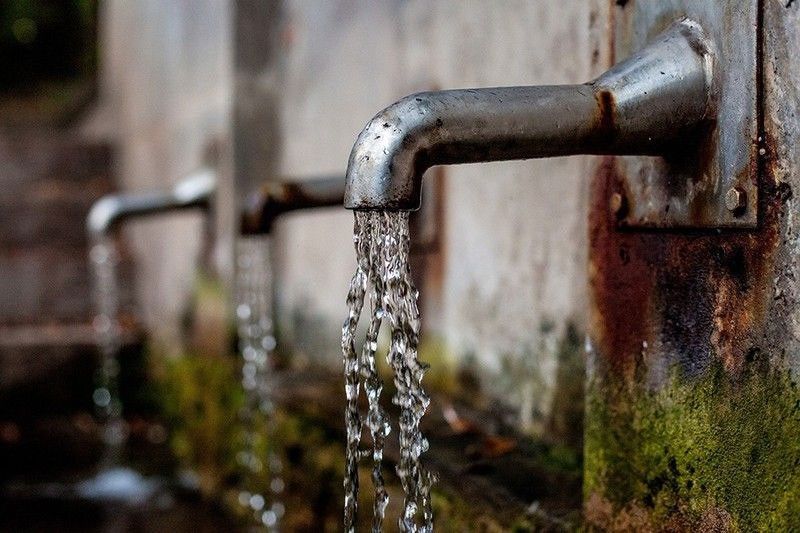Clean water finally


In July 2010 through a resolution, the United Nations General Assembly explicitly recognized the human right to water and sanitation and acknowledged that clean drinking water and sanitation are essential to the realization of all human rights.
The same resolution called upon states and international organizations to provide financial resources, help capacity building and technology transfer to help countries, in particular developing countries, to provide safe, clean, accessible and affordable drinking water and sanitation for all.
According to a report by the World Health Organization and UNICEF, some three in 10 people worldwide or 2.1 billion lack access to safe drinking water at home. And that while billions of people globally have gained access to basic drinking water since 2000, these people do not necessarily provide safe water.
Last year, the National Water Resources Board said that about 11 million Filipino families still have no access to clean water and that these families get water from unsafe sources like deep wells, springs, waters, lakes and rainwater.
But the 2022 Annual Poverty Indicators Survey of the Philippine Statistics Authority revealed that majority of the families surveyed, or 97.6 percent, had an improved source of drinking water, with more than half of them having sourced their drinking water from refilling stations. Other common source of drinking water was piped into dwelling units for 17.2 percent of those surveyed.
Across regions, NCR and Region 3 (Central Luzon) at 99.3 percent each had the highest percentage of families with access to basic service level of drinking water followed by Region 2 (Cagayan Valley) and Region 1 (Ilocos) with 99.1 percent each. Regions with the least access to basic service level were BARMM at 87.8 percent, Region 5 (Bicol) with 90.1 percent, and Region 9 (Zamboanga Peninsula) at 90.2 percent, the PSA survey revealed.
Every person has the right to have access to clean water as one of the basic human rights that leads to a strong and inclusive economy. However, in the Philippines, clean water remains elusive to many Filipinos given that one-fourth of the country lives below the poverty line.
The government and private sector should work together so that this basic need is accessible to all segments of the population.
With the opening of the 300 millions of liter per day (MLD) bulk water project in Davao City by the Aboitiz Group, the country has taken a step closer to achieving this dream.
The operational launch of the Davao City Bulk Water Supply Project (DCBWSP), which is said to be the largest of its kind in the country with a 70-kilometer pipeline, addresses the water needs of over one million Davaoeños, augments the city’s reliance on groundwater sources, and thus allowing the aquifers to rest and replenish while accommodating increasing water demand, according to Apo Agua Infrastructure, a water subsidiary of Aboitiz InfraCapital.
What is unique about this project is that it would be providing power to communities at the same time. This is because the water that passes through the Tamugan River will go through a hydroelectric power plant owned by the Aboitiz Group, and the water is cleaned and distributed to the communities through the Davao City Water District (DCWD).
Through this initiative, the two million residents who call Davao City home get to enjoy clean water and sustainable energy at the same time.
Aboitiz in a statement said that water treatment plant is powered by renewable energy sourced from its own run-of-river hydroelectric power plant. It was designed with the water-energy nexus concept, a first in Southeast Asia, wherein the water used to generate power is treated and supplied to DCWD’s water supply systems, creating an environmentally conscious and efficient water supply cycle.
The facility also includes a DOH-accredited laboratory for water quality analysis that is capable of conducting additional water test parameters to ensure that high-quality potable water is consistently delivered to DCWD for distribution to its customers.
This project reflects the potential of how communities can be uplifted through collaboration between the government and private sector. In this case, the private sector or the Aboitiz Group in particular builds a new asset that addresses a critical need of communities which is water. As for the government, it enhances the potential of the project through its existing assets like DCWD.
As much as water is needed by our society, bulk water projects have faced criticism from some due to fears that their construction would lead to less area being used for other activities such as agriculture.
But proponents of the project have explained that these people have nothing to fear, given that the project was built along the Tamugan River at the foothills of Mt. Apo. This ensures that the area can still be used for other agricultural and commercial purposes which can equally lead to the development of Davao City. Tamugan River has been identified by the DENR as Class A , meaning it is suitable for conventional water treatment.
The bulk water project does not only provide clean water but also clean energy and at the same time, there’s no projected adverse environmental impact to communities. Therefore, the project brings massive rewards to Davaoeños with no or very minimal risks to them.
The project had unfortunately been beset by bureaucracy-related delays throughout the decades. While one can argue that the delays could have been prevented, what’s important today is to maximize the project’s potential to uplift the lives of Davaoeños.
For comments and information that you may want to share, please email at [email protected] and at [email protected]
- Latest
- Trending































